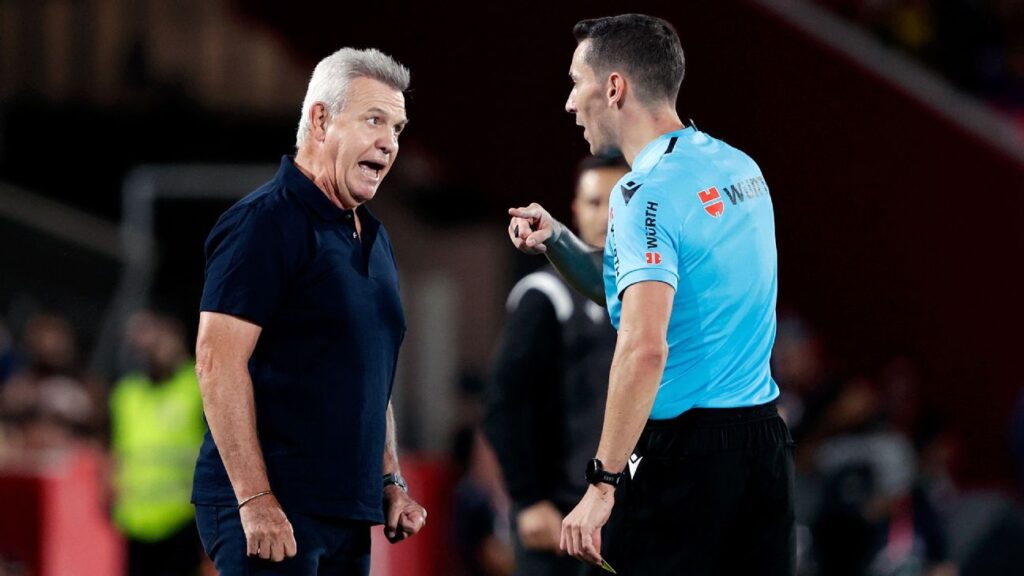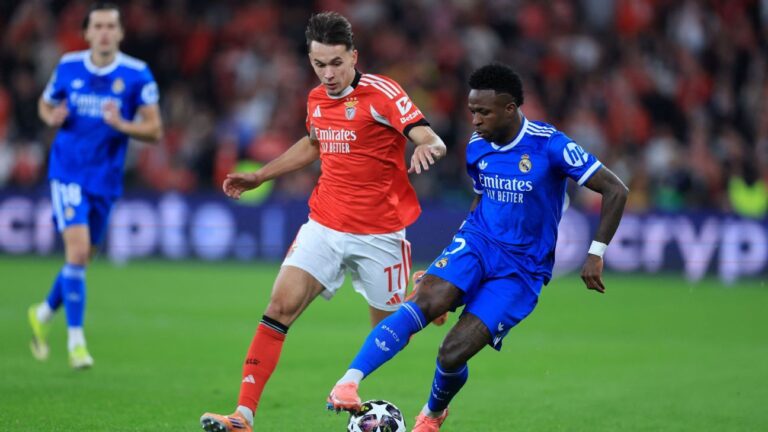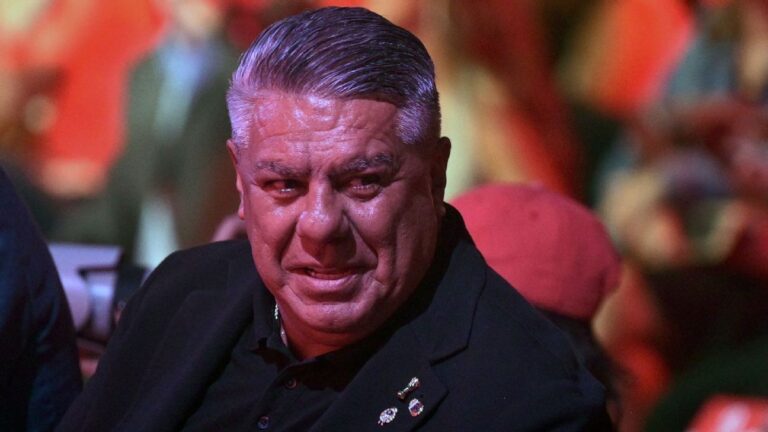Not so long ago, Real Mallorca manager Javier Aguirre called his best striker a “weird, ugly monster,” but the striker didn’t care. “He’s right: I am ugly. I think there’s something wrong with my wife’s eyesight,” Vedat Muriqi replied. “And he’s [Aguirre] not so handsome either.”
And that’s exactly the way they like him.
– Stream on ESPN+: LaLiga, Bundesliga, more (U.S.)
A great storyteller, a born leader, exceptionally charismatic, Aguirre has the kind of personality that fills a room, carrying you along with him, and the kind of mouth your parents wash out with soap and water — and he’s so much the better for it.
So, more importantly, is football. Not really because of all the cursing and the cackling — although, quite honestly, because of that too — but because there’s an authenticity, something real about him: a sincerity, a willingness to own his words that breaks from the boredom, the monotone, the monotony and the carefully crafted vacuum, that tells the truth. A truth, anyway — and not just his interests.
It works, too. If there’s an accusation often levelled at journalists — and let’s be honest, one of the reasons that managers and players don’t always say what they think — it is that words are twisted, decontextualised. Here, at least, it’s true. When Aguirre said that about Muriqi, it was a compliment. This great big lump of a striker was the kind of guy you would cross the street to avoid, Aguirre said, but despite looking clumsy and a bit scary he could really play.
Oh, and he was also a lovely guy.
Muriqi’s response showed that he didn’t mind, that this way of speaking actually reached him, motivated him. Asked about Aguirre as Mallorca faced Barcelona this week, the Kosovar told a nice story about when the coach first arrived at the club with Mallorca near the bottom of the table, almost certain to get relegated.
“We were sunk and yet he turned up with this enthusiasm, this happiness, an honesty — and it’s thanks to him that we are here. You can talk to him about anything,” said Muriqi.
There was a moment recently when Aguirre said he had been handed a yellow card for “talking” and the only response was: well, duh. That may not always be the best plan, and there will be players as well as referees who don’t like it. Some fans and media too. Yet, because it doesn’t feel like an act, because he is not going to change, because there’s a fondness and a warmth to go with it, even when he’s taking you to pieces, it doesn’t seem like a bad idea. Besides, what you think of Aguirre as a coach is a different matter — even if it is, absolutely, related to all this with his career being character-driven, more about force of personality than anything else.
After all, as Aguirre himself says: “They [players] are human beings too.”
This week provided a reminder of that. In the last minute of Mallorca’s 2-2 draw with Barcelona, Cyle Larin raced through and missed a golden opportunity to win the match. Afterward, Aguirre was asked about it on Spanish TV. He seemed upset at the miss, the presenter said.
“He should be, the bastard, because you can’t miss that,” Aguirre shot back. “A win would have been too much, but if they’re going to put it on a plate for you … Shoot at goal! Oh, my son!”
In front of him was a monitor. “Can you play it again?” Aguirre asked, so they did. As he watched it, he went through it again. It was like watching it with a mate in a bar. “Look, look, look. Oh my life, son. When he was at Valladolid, that was going in the top corner!”
Truth be told, Larin might not have liked that. From other coaches, everyone else might not have either: there is an indulgence of Aguirre, it is true. But that’s partly because, well, it is true. Just as it was true a few weeks ago when he turned up in a news conference and said: “It’s my fault. I got it wrong. I got everything wrong.”
There’s something to be said for the sincerity. At a time when clubs close doors, when you beg for 90 seconds of nothingness, when fans hear the same pointless set phrases over and over — “We knew it was going to be a difficult game” — when no one dares speak and what we see and hear seems so far removed from the truth, an ersatz reality, it is to be welcomed. Even to be clung onto a little desperately, a crumb for a starving man. Maybe this is overplayed, maybe it’s even a bit meta, but that little glimpse of something genuine this week, that little reminder that there are people out there, was something to embrace.
The best example came when they were discussing the possible penalty for Barcelona in which Lamine Yamal went down, and Aguirre decided that it was not enough just to say it’s hard to be a referee but to demonstrate it and in doing so revealed yet another a basic truth that one no one seems to want to accept, still less say: that often the officials, the easiest of targets and everyone’s get-out clause, are the victims and not some vengeful enemy. That it’s our fault and our responsibility too, all of ours.
Time for everyone to be a bit more like Aguirre; time to tell the truth. “I referee in training, and those b——s even try to con me,” he said.




